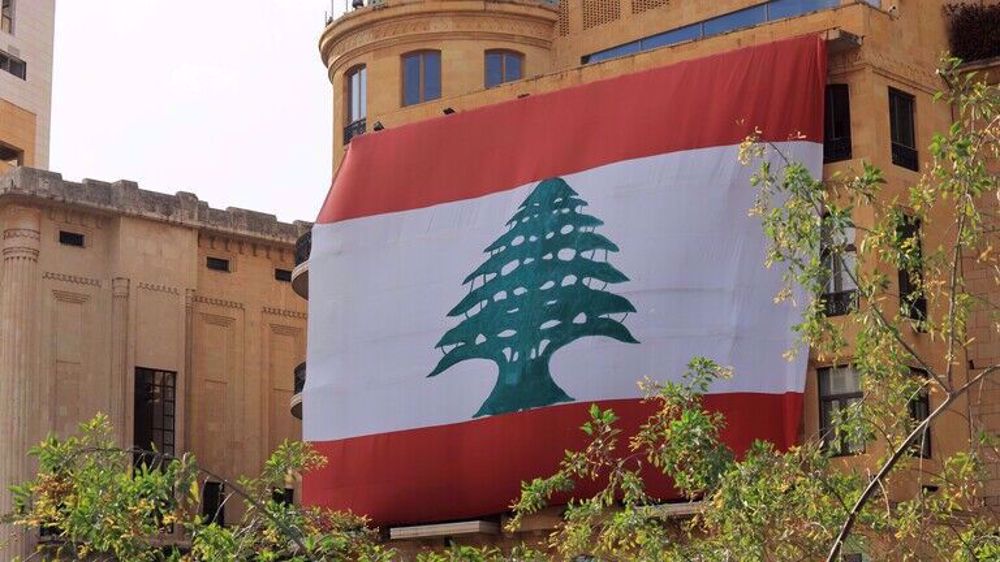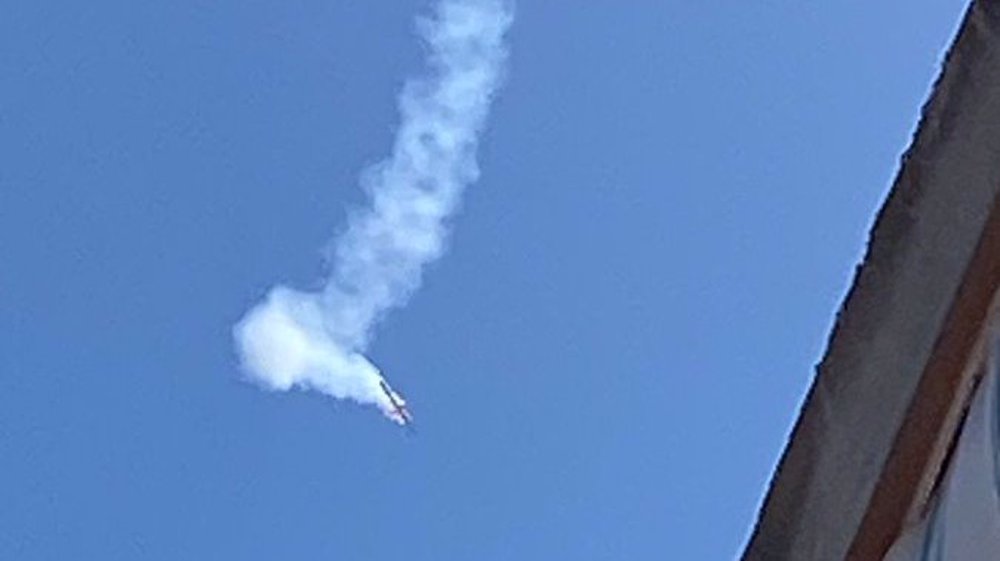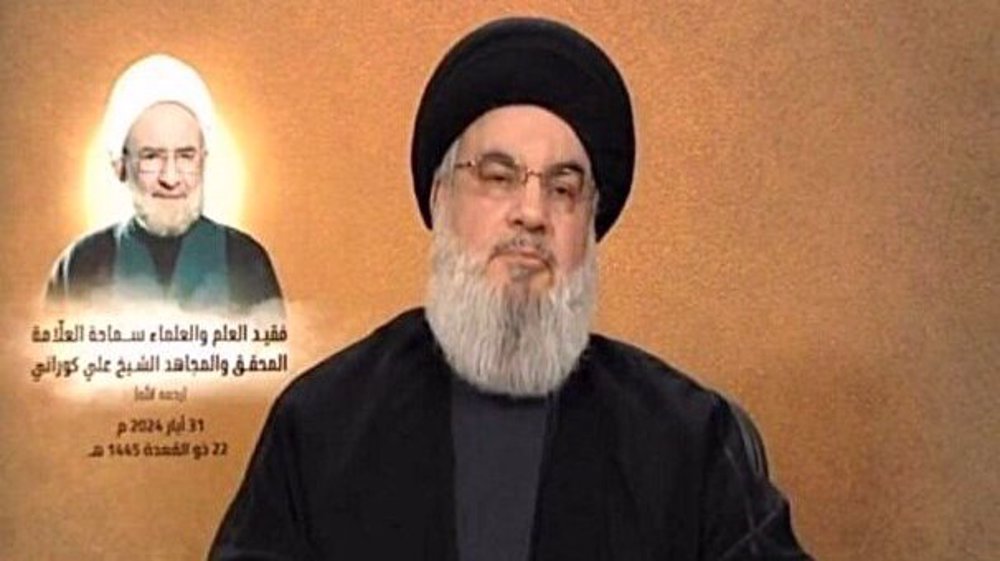Dozens of Lebanese protest against monetary policies amid economic crisis
Dozens of people have staged a demonstration in Lebanon to express their resentment over the acute economic crisis in the country, as nationwide anti-government demonstrations demanding departure of the ruling elite enters its seventh week.
The protesters converged outside the building of the central bank, officially known as Banque du Liban, in Hamra neighborhood of the capital Beirut on Thursday evening, accusing the bank and all financial institutions of being partly behind the economic crisis that Lebanon, one of the most heavily indebted states in the world, is grappling with.
Protesters chanted slogans against Central Bank Governor Riad Salameh, blaming him in part for the devaluation of the country’s national currency.
They also asked the central bank to remove the government's public debt, saying that banks are making huge profits from the interests paid by the government on its debt.
Riot police forces prevented the protesters from entering the central bank's main entrance.
The development came a day after demonstrators staged a sit-in outside Banque Du Liban building, and a group of young protesters spent the night inside tents set up outside the bank.
Also on Thursday, Lebanon paid off a Eurobond of $1.5 billion that was due to mature.
Two officials with knowledge of the matter said on condition of anonymity that the next bond payment is scheduled for March, when a $1.2 billion Eurobond comes due.
On October 29, then Prime Minister Sa’ad al-Hariri submitted his resignation to President Michel Aoun.
Under the constitution, Hariri’s cabinet would stay on in a caretaker capacity until a new government is formed.
The protests began on October 17, when the government proposed imposing a tax on Whatsapp calls, along with other austerity measures.
Protesters in Lebanon have stopped blocking roads and setting up barricades, and instead shifted to holding sit-ins at state-affiliated sites.
They say they will maintain pressure on the political establishment until their demands for the departure of the ruling elite and an end to chronic economic mismanagement and corruption are met.
Growth in Lebanon has plummeted in the wake of endless political deadlocks and an economic crisis in recent years.
The country hosts 1.5 million Syrian refugees, and their presence is often blamed for putting pressure on the already struggling economy.
Unemployment stands at more than 20 percent, according to official figures.
The Lebanese Finance Ministry says the national debt is hovering around $85 billion, which accounts for more than 150 percent of Gross Domestic Product (GDP).
Successive governments have failed to address a waste management crisis or improve the electricity grid, which is plagued by daily power cuts.
VIDEO | Iran mourns
Belgium slams Israel over effort to brand UNRWA 'terrorist group'
VIDEO | Thousands of pro-Palestinian protesters march in Paris
Palestinian Red Crescent says 33 of its medical staff killed by Israel
Israel a 'terrorist' entity with no respect for international law: EU legislator
Lebanon calls for Israel’s withdrawal from its occupied south
UK to continue arms sales to Israel after review
VIDEO | Rafah: Global red line




















 This makes it easy to access the Press TV website
This makes it easy to access the Press TV website